‘Lower courts must ensure speedy justice’
10:28 AM, Tuesday, December 25th, 2018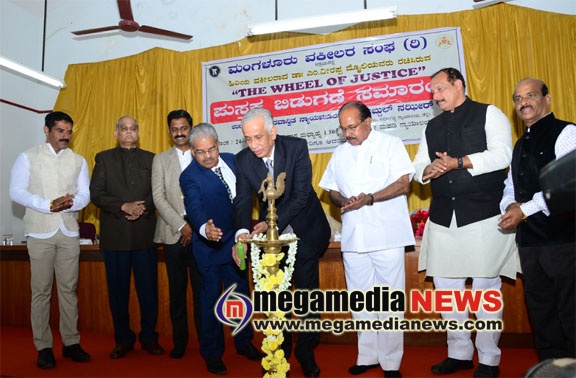 Mangaluru: Little awareness on rights, backlog of cases, financial constraints of the victims have been causing hindrance to early disposal of cases in court, Supreme Court judge Justice S Abdul Nazeer said.
Mangaluru: Little awareness on rights, backlog of cases, financial constraints of the victims have been causing hindrance to early disposal of cases in court, Supreme Court judge Justice S Abdul Nazeer said.
“The lower courts should seriously work towards overcoming such hindrances,” the judge added.
He was speaking after releasing the book ‘The Wheel of Justice’, written by MP and former minister M Veerappa Moily at the district court complex in the city on Monday.
“The backlog of cases has been delaying justice. In spite of reforms introduced in the judicial system, the backlog has not declined drastically. People too lack knowledge about the available rights under the law. Due to financial constraints, many people have remained away from undertaking legal battles. Finding solution to all these problems are a great challenge for the judiciary,” he explained.
Challenges : Speaking further, Nazeer said that Moily has discussed in length the challenges before the judiciary in its work. “There is a need to make an in-depth study and discuss some of the issues mentioned in the book. Law universities should use this book as a syllabus,” he suggested.
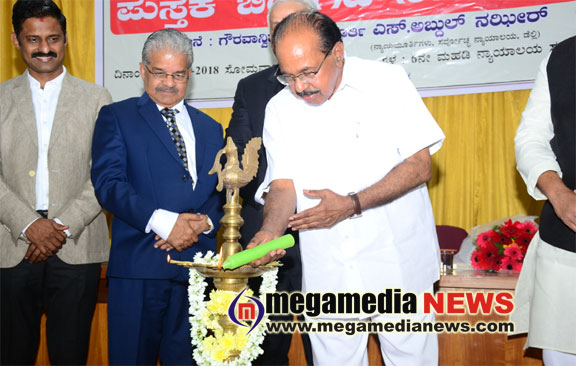 M K Vijayakumar, Karkala advocate, said that while Moily is active in politics, there was no mention of politics in the entire book. “Some issues have been dealt with to bring in reforms in the judicial system. The writer wants the wheels of justice to move always. He has written his experiences in the work,” he added.
M K Vijayakumar, Karkala advocate, said that while Moily is active in politics, there was no mention of politics in the entire book. “Some issues have been dealt with to bring in reforms in the judicial system. The writer wants the wheels of justice to move always. He has written his experiences in the work,” he added.
Moily, who spoke on the occasion, said a judicial system wherein talents in all categories are selected as judges should come into effect in India. “As a law minister, I had tried to bring in reforms in the system,” he said.
“When I was chief minister, a file seeking approval for the recruitment of judges had come before me. When I checked the list, there was none from the SC/ST community. I appealed to the High Court to take up recruitment afresh,” Moily remembered.
“Later, SC/ST candidates were imparted training at the National Law School of India University at an estimated cost of Rs 45 lakh. In the exam conducted, 42 judges from the SC/ST community were selected, which was a historical change,” he stated.
Simillar Posts
Warning: count(): Parameter must be an array or an object that implements Countable in /home/megamcaq/public_html/wp-content/plugins/post-plugin-library/common_functions.php on line 357
- None Found
Leave a Reply
© Copyright 2008 www.megamedianews.com All Rights Reserved. Privacy Policy








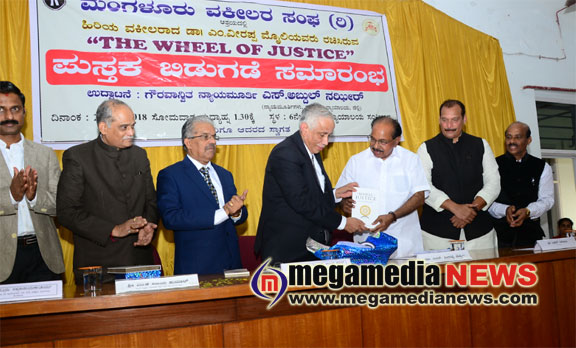
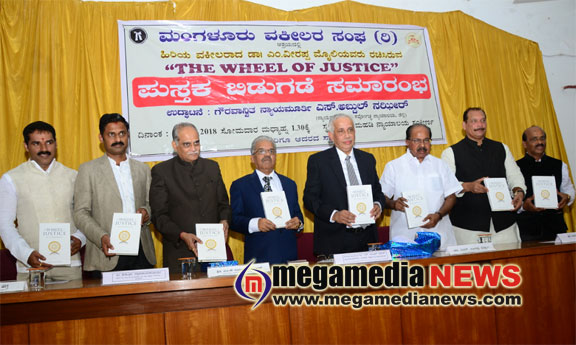
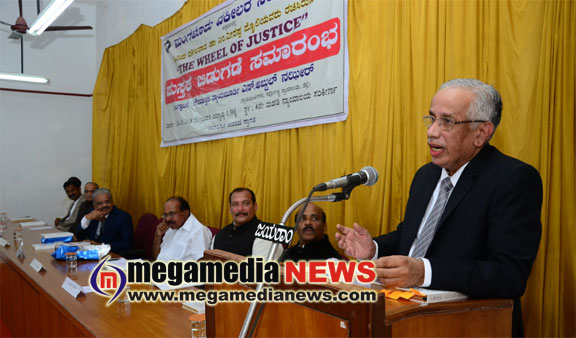
 Posted in
Posted in  Tags:
Tags: 



